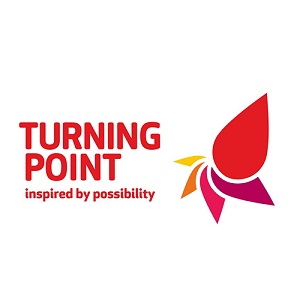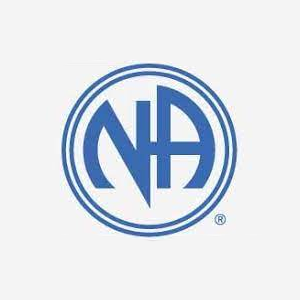Drug & Alcohol Rehab in Worcester

How Does Rehab Work?
Rehab involves many strategies that are designed to deal with individual addiction with support, wellness methods, and steps to restoring balance. Clients are introduced to life-changing, supportive, and therapeutic programmes that are led by experienced and professional therapists. Along with individual therapeutic intervention, individuals can benefit from the support received from group sessions. Addictions are treated through an inpatient or an outpatient programme. If you enter an inpatient rehab programme, the programme requires that you remain inside the centre of the facility with limited access to the outside world. Outpatient services are an option for those with less severe dependencies and will meet with a counsellor weekly while attending work commitments and residing at home.
What Happens During Residential Rehab?
The choice to seek rehab for drug and alcohol addiction is actually a courageous one and can be supported with individualised rehabilitation services. We provide a breakdown of what you can expect during the process of drug and alcohol rehabilitation.
Rehab occurs in stages. It starts with a medical assessment. Individuals must be professionally assessed to help staff understand the nature of your addiction, its history and comorbid disorders (such as bipolar or schizophrenia). The information obtained from the assessment is used to create a unique therapy programme for you. Because every person is different, a personalised treatment plan will help provide a more tailored programme that meets your needs and requirements.
Assessments are followed by alcohol or drug detoxification. Individuals who enter detox will begin withdrawing from substances including alcohol, as the body returns to a normal state of function. This timeline will differ depending on the type of drug used and the length of dependency. Only when the system no longer contains the drug will individuals participate in a treatment plan.
Therapy is an important part of rehab and every aspect of addiction treatment must be tailored to address individual backgrounds, addictions, and circumstances. Interventions can range from private counselling and cognitive behavioural therapy to building coping mechanisms, skills, and attending group meetings.
1. Assessment

A medical assessment is carried out before treatment to determine medical history and alcohol/drug use over time. For those looking for residential treatment, an admissions team will give you a telephone assessment. An assessment by telephone helps the treatment facility deliver a tailored treatment programme. It can also help medical professionals to support the client during detox.
Whether you or someone you care about require professional support to overcome substance addiction, it all starts with an individual assessment. Assessments are important to the success of therapy because it determines the type of therapeutic plan based on the addiction and potential comorbidities (depression or anxiety).
2. Detox

If you are addicted to drugs and/or alcohol or you have a substance in your body, you must undergo detox before you can proceed with a recovery programme. Detox is performed in a residential rehab or a medical facility. During detoxification, the substance is gradually cleared from the body which usually results in withdrawal symptoms.
The reason medical detoxification from substances is advised is owed to the difficulties and the nature of withdrawal symptoms that may occur during this time. Without reliance on a professional service and medical attention, the risk of relapsing is increased. Individuals who receive detox and an assessment will be required to participate in a therapeutic programme that involves inpatient rehab or outpatient programmes.
3. Therapy

Once a medical assessment and detox are finalised, individuals will begin therapy. Therapeutic intervention may consist of inpatient or outpatient services depending on your finances and life commitments. Some of the most common therapies you can expect at a treatment facility include traditional one-on-one counselling, trauma counselling, and skill development, as well as group therapy sessions.
Step by Step Process for Residential Rehab
To understand your medical and mental health history.
Arrange a suitable date to begin your journey to recovery.
Begin the managed withdrawal process from substances including alcohol.
To understand the root cause of addiction and how to overcome it.
Aftercare is provided to help manage the risk of relapse.
To help heal the wounds that addictive behaviour has caused others.
Find your Nearest Rehab Centre near Worcester
The nearest rehab centre is Worcester City Inpatient Unit.
Address: Worcester City Inpatient Unit, Timberdine Cl, Worcester WR5 2DD, United Kingdom
Call 0333 4444 432 to discuss your alcohol or drug rehab requirements and any other questions you may have about the process of residential rehab.
Outpatient Addiction Services in Worcester
From inpatient to outpatient services, the right treatment for substance addiction will depend on the assessment and budget to determine the appropriate treatment for you. For those who are interested in the flexibility and the affordability of outpatient addiction services, we take a closer look at what it entails compared with an inpatient programme.
Outpatient programmes are not a 24 hour or even a 12-hour programme, but rather involve weekly sessions with a therapist or group. Individuals will live at home and continue to work or tend to family time while receiving the necessary therapy.
If you are interested in pursuing outpatient treatment, it is vital to find the right programme that suits your needs. Outpatient programmes range from paid private counselling to free charitable organisations specialising in drug and alcohol addiction.
NHS Free addiction services near Worcester

Sanderson House, 17-19 Museum Street, Ipswich, Suffolk IP1 1HE
WebsiteThe Benefits of Outpatient Services
Private Outpatient addiction services also provide tailored care for those looking for optimal support and chances of recovery. – Owing to the flexibility of outpatient therapy, it can accommodate a large range of individuals and financial situations. Therapy sessions are attended once/twice weekly under the guidance of a certified therapist or counsellor. – It is more affordable compared with an inpatient programme.
The Challenges of Outpatient Services
While outpatient play an important role in accessible addiction treatment, it is also linked with a higher relapse potential. While free outpatient services do exist through the NHS or UK based charities, waiting times are to be expected and treatment tends to be more generic.

How Much Does Rehab Services Cost in Worcester?
Residential rehab can cost £1500 – £4000 per week. To determine how much other addiction treatment services cost requires a closer look at the services included. Residential rehab is the most costly of the two; however, there are alternative organisations and service providers that include charities offering free addiction treatment services for qualifying individuals.
The NHS and charities including Turning Point will need a self-referral to be considered for therapy. You can also find many other affordable services (such as private counselling) or free therapies and community-supported programmes for those with drug or alcohol addiction. These groups include AA or Alcoholics Anonymous, Narcotics Anonymous, and Cocaine Anonymous.
Support Groups in Worcestershire

Allsorts Group
Room 1, St Andrews Methodist Church, Pump Street, Worcester, Worcestershire WR1 2QT

Worcester As Bill Sees It
Ombersley Road Methodist Church Hall, Ombersley Rd WR3 7BP

Worcester Daily Reflections
Friends Meeting House, 1 Sansome Place, (behind Worcester Arts Workshop) WR1 1UG
The Pros and Cons of Seeking Treatment in Your Local Area
Pros
1. You are familiar with the area which may provide a layer of comfort/safety.
2. Loved ones can easily travel to visit or are close by.
3. You may save on the costs of travelling long distances for addiction treatment, or free services may only be offered in your area of residency.
Cons
1. A local environment means access to drug dealers or other triggers. This is more of a concern if you decide upon outpatient programmes.
2. Not considering locations outside your local area could mean missed opportunity for more valuable and rewarding programmes.
3. Addiction treatment services that are nearby do not always offer the best standard of treatment.
The CQC website will provide information and ratings on a service in the event you are unsure regarding a particular service.
